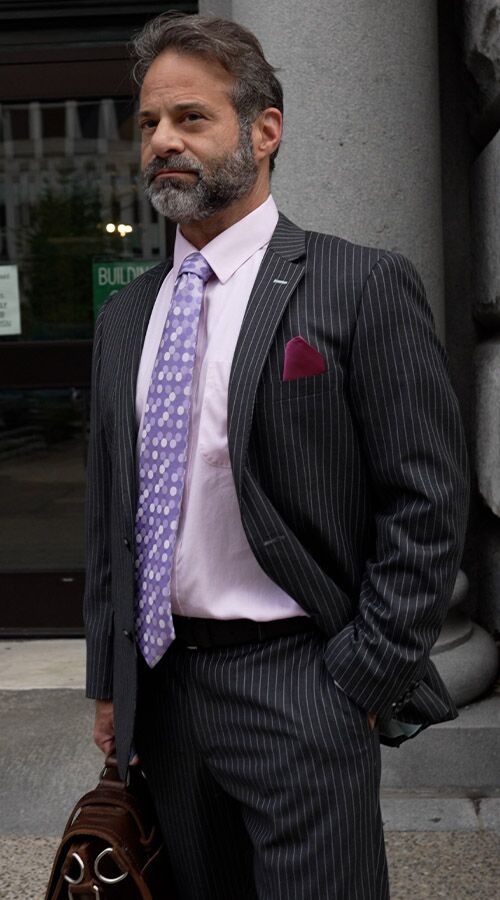Personal injury cases can be incredibly complex, often involving intricate details that require a deep understanding of various fields. In New York, personal injury cases rely heavily on the testimony of witnesses who can provide professional insights to support or refute claims made by the parties involved. These individuals play a crucial role in helping the court understand technical aspects of the case that are beyond the knowledge of the average person. Their testimony can be pivotal in determining the outcome of a case, making their involvement essential in many personal injury lawsuits.
Understanding Personal Injury Cases
Personal injury cases arise when an individual suffers harm due to the negligence or intentional actions of another party. These cases can include a wide range of incidents, from car accidents and medical malpractice to slip and fall incidents and defective product claims. The injured party, known as the plaintiff, seeks compensation from the party responsible for their injuries, known as the defendant. To secure this compensation, the plaintiff must prove that the defendant’s actions directly caused their injuries and resulted in damages such as medical expenses, lost wages, and pain and suffering.
Proving negligence or liability in personal injury cases often requires more than just the plaintiff’s testimony. The plaintiff must provide evidence that clearly demonstrates the defendant’s responsibility for the injury. This is where professional witnesses come into play, offering their knowledge to clarify complex matters and substantiate the plaintiff’s claims.
Types of Witnesses in Personal Injury Cases
There are various kinds of witnesses who can be called upon in personal injury cases, each bringing a unique perspective to the courtroom. Medical professionals are frequently involved in personal injury cases, particularly those involving severe injuries or medical malpractice. They can explain the nature and extent of the plaintiff’s injuries, discuss the treatment provided, and offer opinions on the plaintiff’s prognosis and the potential long-term effects of the injuries.
Accident reconstruction professionals are often used in cases involving motor vehicle accidents. They analyze evidence from the accident scene, such as skid marks, vehicle damage, and traffic patterns, to recreate the events leading up to the collision. Their analysis can help determine the cause of the accident and establish fault.
Engineers and other technical professionals might be called upon in cases involving defective products, construction accidents, or structural failures. They can assess whether a product was designed or manufactured correctly, or if a building was constructed following safety standards. Their insights can help establish liability by showing how a defect or failure contributed to the plaintiff’s injuries.
The Process of Selecting a Witness
The process of selecting a professional witness for a personal injury case is meticulous and strategic. Attorneys must choose someone whose knowledge and testimony will be deemed credible and reliable by the court. This involves assessing the witness’s qualifications, experience, and ability to communicate complex information clearly and effectively.
Attorneys often look for individuals with relevant academic degrees, professional licenses, and a history of working in their field. They also consider whether the witness has previously testified in court and how their testimony was received. The ability to explain complex concepts in a way that is understandable to a judge and jury is critical, as it can significantly impact the case’s outcome.
Once a suitable witness is identified, attorneys work closely with them to prepare for their testimony. This preparation includes reviewing all relevant case materials, discussing the key points that need to be addressed, and practicing how to present their findings in court. The goal is to ensure that the witness is well-prepared and confident when they take the stand.
The Role of Witnesses in the Courtroom
In the courtroom, witnesses provide testimony that can help clarify the facts of the case and support the plaintiff’s claims. They are often called upon to explain technical or scientific aspects of the case that are beyond the knowledge of the average person. This can include detailing the mechanics of an accident, explaining medical diagnoses and treatment plans, or discussing the technical specifications of a product.
The testimony provided by these witnesses can be instrumental in establishing key elements of the plaintiff’s case, such as causation and damages. For example, a medical professional might explain how the plaintiff’s injuries are consistent with the type of accident they were involved in, thereby linking the defendant’s actions to the plaintiff’s harm. Similarly, an accident reconstruction professional might provide a detailed analysis of how the defendant’s negligent driving caused the collision.
The credibility and clarity of the witness’s testimony can significantly influence the judge and jury’s understanding of the case. A well-prepared and articulate witness can make complex information accessible and persuasive, helping to build a strong case for the plaintiff.
Related Videos
How should I choose a personal injury attorney for my claim?
Insurance companies dirty tricks
Challenges Faced by Witnesses
While the testimony of these witnesses is often crucial, it is not without challenges. These individuals may face intense scrutiny from the opposing party, who will attempt to discredit their findings and opinions. Cross-examination can be particularly rigorous, as opposing attorneys will seek to highlight any inconsistencies or weaknesses in the witness’s testimony.
To withstand this scrutiny, witnesses must be thoroughly prepared and confident in their knowledge. They must be able to defend their opinions under pressure and remain composed during cross-examination. This requires not only a deep understanding of their field but also the ability to think quickly and respond effectively to challenging questions.
Additionally, witnesses must maintain impartiality and objectivity. Their role is to provide unbiased information that helps the court understand the technical aspects of the case. Any perception of bias or partiality can undermine their credibility and weaken the plaintiff’s case.
Impact on Personal Injury Cases
The involvement of professional witnesses can have a profound impact on the outcome of personal injury cases. Their testimony can provide the court with the technical knowledge needed to understand the evidence and make informed decisions. This can be particularly important in cases where the facts are complex or disputed.
A strong, credible witness can bolster the plaintiff’s case, making it more likely that they will receive the compensation they deserve. Conversely, a weak or unconvincing witness can undermine the plaintiff’s claims and jeopardize their chances of a favorable outcome. Therefore, the selection and preparation of witnesses are critical components of any personal injury case.
Contact The Nicotra Law Firm, PC Today
At The Nicotra Law Firm, PC, we understand the importance of thorough and strategic preparation in personal injury cases. Our team works diligently to identify and collaborate with the most qualified witnesses, ensuring that their testimony effectively supports our clients’ claims. If you or a loved one has been injured due to someone else’s negligence, we are here to help. Contact The Nicotra Law Firm, PC today to discuss your case and learn how we can assist you in seeking the compensation you deserve.








